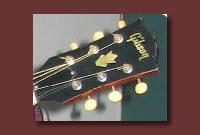SQL? WTF?
The other day I was reading Dogette’s site, which for years has become a regular part of my day. I noticed that she blogged about her web host having upgraded her account to include multiple MySQLs.
I thought, â€Yo, Jimbo. What is this SQL thing? If hosting services are offering multiples of them, it must be some good shit.â€
I’ve made no secret of my technodoofustry, but my intellectual curiosity remains intact, particularly when I come across something that strikes Dogette as being more blogworthy than dogshit or her continuing squirrel jihad.
So, I popped up Google and figured that, within a minute or two, I would be able to hang with the Geeks of the World and talk some serious SQL Shit.
Here’s what I learned.
SQL (Structured Query Language) is a standard interactive and programming language for getting information from and updating a database. Although SQL is both an ANSI and an ISO standard, many database products support SQL with proprietary extensions to the standard language. Queries take the form of a command language that lets you select, insert, update, find out the location of data, and so forth. There is also a programming interface.
huh?
SQLis a computer language designed for the retrieval and management of data in relational database management systems, database schema creation and modification, and database object access control management.
say what?
An industry-standard language for creating, updating and, querying {relational database management systems}. SQL was developed by {IBM} in the 1970s for use in {System R}. It is the {de facto standard} as well as being an {ISO} and {ANSI} {standard}. It is often embedded in general purpose programming languages. The first SQL standard, in 1986, provided basic language constructs for defining and manipulating {tables} of data; a revision in 1989 added language extensions for {referential integrity} and generalised {integrity} {constraints}. Another revision in 1992 provided facilities for {schema} manipulation and {data administration}, as well as substantial enhancements for data definition and data manipulation. Development is currently underway to enhance SQL into a computationally complete language for the definition and management of {persistent}, complex objects. This includes: generalisation and specialisation hierarchies, {multiple inheritance}, user defined {data types}, {triggers} and {assertions}, support for {knowledge based systems}, {recursive query expressions}, and additional data administration tools. It also includes the specification of {abstract data types} (ADTs), object identifiers, {methods}, {inheritance}, {polymorphism}, {encapsulation}, and all of the other facilities normally associated with object data management. The emerging {SQL3} standard is expected to be complete in 1998. According to Allen G. Taylor, SQL does _not_ stand for “Structured Query Language”. That, like “SEQUEL” (and its pronunciation /see’kw*l/), was just another unofficial name for a precursor of SQL. However, the IBM SQL Reference manual for DB2 and Craig Mullins’s “DB2 Developer’s Guide” say SQL _does_ stand for “Structured Query Language”. {SQL Standards (http://www.jcc.com/sql_stnd.html)}. {An SQL parser (ftp://ftp.uu.net/published/oreilly/nutshell/lexyacc/)} is described in “Lex & Yacc”, by Levine, Mason & Brown published by O’Reilly. {The 1995 SQL Reunion: People, Projects, and Politics (http://www.mcjones.org/System_R/SQL_Reunion_95/)}. [“A Guide to the SQL Standard”, C.J. Date, A-W 1987]. [“SQL for Dummies”, Allen G. Taylor, IDG Books Worldwide]. (2000-07-07)
ooooooooookay.





Ah, yes, but how many of these SQL-ian Peeps know German, Italian, and Legal Disclaimers? Not I. I know none of these things, but I could fly through the entire Mussaf service in Hebrew like it’s nobody’s business. That, and $2’ll get me on the subway.
I think it could safely be said, and read into it what you like: Dogette knows her shit.
Comment by Erica — December 4, 2007 @ 9:37 am
I know POOP, anyway. Not to put too fine a point on it.
Comment by dogette — December 4, 2007 @ 9:58 am
It is rather simple isn’t it, to bad they don’t give an example of an sql data query with replacement values to stratification of probabilities within a limited range which are user defined. I think it would be much clearer then.
Comment by james old guy — December 4, 2007 @ 10:18 am
Well Jimbo… I think you should learn SQL and then put all your blog roll into a backend database. I’m not sure WHY you would do this, but as you seem to be fascinated with it – go right ahead. *grin*
Comment by Teresa — December 4, 2007 @ 11:34 am
This is just marketing. Like all marketing, it can be safely ignored.
Comment by Ken Adams — December 4, 2007 @ 11:40 am
Yeah, you and me Jimbo. We’ll just hang out here in the back of THAT bus.
I’ll bring the vodka! 😉
Comment by Tammi — December 4, 2007 @ 12:22 pm
Seriously, whatever the heck an SQL is, it doesn’t really matter…
this whole world wide interweb dealie probably isn’t going to catch on anyway.
Comment by Zooomabooma — December 4, 2007 @ 12:50 pm
Jimbo,
I’ll make you a deal. I’ll translate SQL to English, (well Joisey-English) for you. And you can translate legal terminology to farmer-English for me.
Okay?
Comment by Jerry — December 4, 2007 @ 4:26 pm
well, shit.
I was hoping to find an understandable explanation in the comments. I’ll check back later.
Comment by Jean — December 4, 2007 @ 7:36 pm
SELECT v.id, v.flavor, p.price
FROM vodka as v,
price as p
LEFT INNER JOIN price ON (p.id = v.id)
WHERE v.proof >= 80
AND v.price <= 15
ORDER BY
v.price ASC
Sorry. That was like a nerd mating call, y’know?
Comment by Craig — December 4, 2007 @ 9:20 pm
Craig, you missed a condition required on this blog. The correct query should be:
SELECT v.id, v.flavor, p.price
FROM vodka as v,
price as p
LEFT INNER JOIN price ON (p.id = v.id)
WHERE v.proof >= 80
AND v.price “”
ORDER BY
v.price ASC
Comment by Ken Adams — December 5, 2007 @ 12:04 pm
Ooh, that didn’t post right. Weird.
must have v.flavor not null
Comment by Ken Adams — December 5, 2007 @ 12:05 pm
A Personal Note To Craig:
It’s like, we won’t see you in the comments anywhere much for a looooong time, so one of us will draw the straw and have to post some geeky shit (“bait”) and BAMMO, there you are. We don’t actually CARE about the nerd stuff. We just want to see if you’re still around and haven’t been replaced by a very small shell script.
Nice screen tan, dude. 😉
Dogette
Comment by dogette — December 5, 2007 @ 7:42 pm
I love it when geeks talk dirty.
Jimbo
Comment by Jim — December 5, 2007 @ 8:40 pm
It’s like the scene from “Who Framed Roger Rabbit,” when Christopher Lloyd was looking for Roger in the diner.
“No toon can resist ‘Shave and a Haircut.'”
“No nerd can resist ‘Fake Dumb SQL Statements.'”
Comment by Craig — December 5, 2007 @ 9:50 pm
Now if we can just get Jimbo going with HTML, Javascript, and maybe start him on XML…
Then, when his eyes glaze over, we toss in TCP/IP, netmasks, and maybe building firewalls 🙂
Comment by DMerriman — December 6, 2007 @ 3:53 am
Geek chum.
Jimbo
Comment by Jim — December 6, 2007 @ 8:21 am
Just do a SELECT *, and get it all…..
Comment by Yabu — December 9, 2007 @ 10:43 am